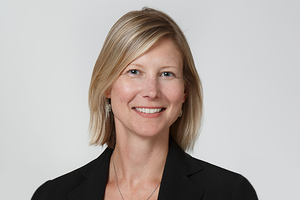Research
New Grants Support Examinations of Access to Quality Child Care

SPA Associate Professor Taryn Morrissey was awarded two grants from the Robert Wood Johnson Foundation to examine the barriers for low-income families in enrolling children in early childcare and preschool.
“We know that high-quality preschool and childcare promotes positive outcomes for children, helps keep families employed, and improves family economic well-being,” Morrissey says. “So, figuring out why participation is lagging among these groups and strategies to increase their enrollment are important.”
Although the benefits of an early start are clear, we know that many low and moderate income earners don’t enroll their children in early learning programs. In 2013, while 80% of 4-year-olds from households of top income earners attended early childhood education, just 60% of 4-year-olds from the middle or lowest tiers did.
The Foundation’s equity-focused policy research funding is designed to support action-oriented projects that advance health equity, build knowledge, and inform policymaking to increase access to early care and education for low-income families. Morrissey’s two studies will each receive $75,000 to support the work for one year.
One grant will fund a collaborative analysis with Professor Colleen Heflin of Syracuse University. The study will look at patterns of instability in parents’ employment, childcare subsidy participation, and children’s childcare arrangements use among low-income families. The scholars will use a unique administrative data set from Virginia to examine these patterns.
In the second project, Morrissey will partner with Scott Allard of the University of Washington and use a national child- and county-level data set to assess how participation in early childhood education programs varies across localities and with local characteristics (e.g., policy and economic factors) in the U.S. over time.
The hope is that the findings reveal patterns that are useful to policymakers for targeting communities and families with resources to support enrollment in early care and education, says Morrissey.
Participation in preschool has more than doubled from 27% to 60% since 1970, and increases in attendance coincide with increased public investments in the federal Head Start program, child-care subsidies, and state-sponsored prekindergarten. Still, even after years of expansion, these programs serve small fractions of eligible children. This research aims to address how despite growing attention on early education, there is a lack of understanding about how the local capacity of public and private programs have changed over time and the factors that impact participation.
